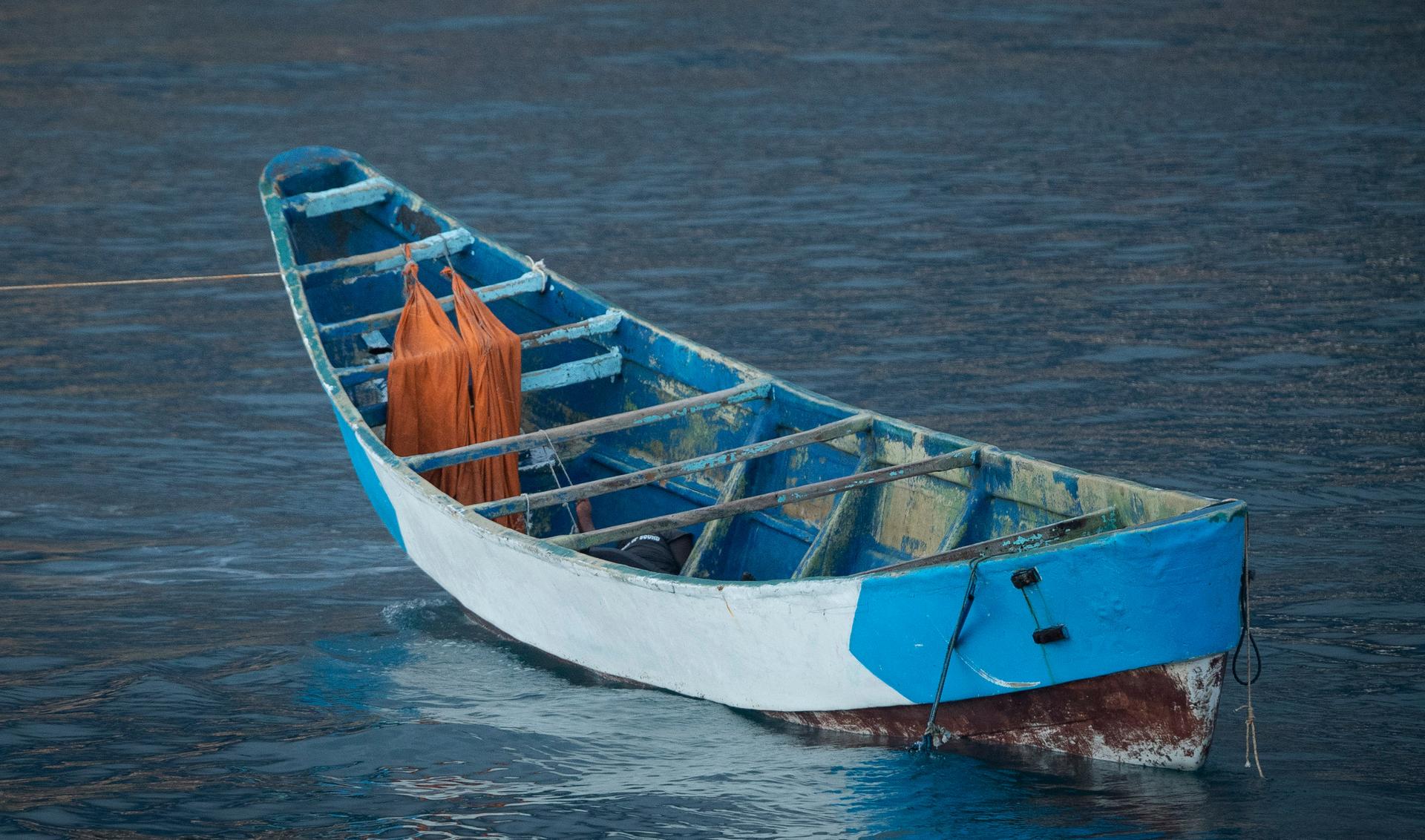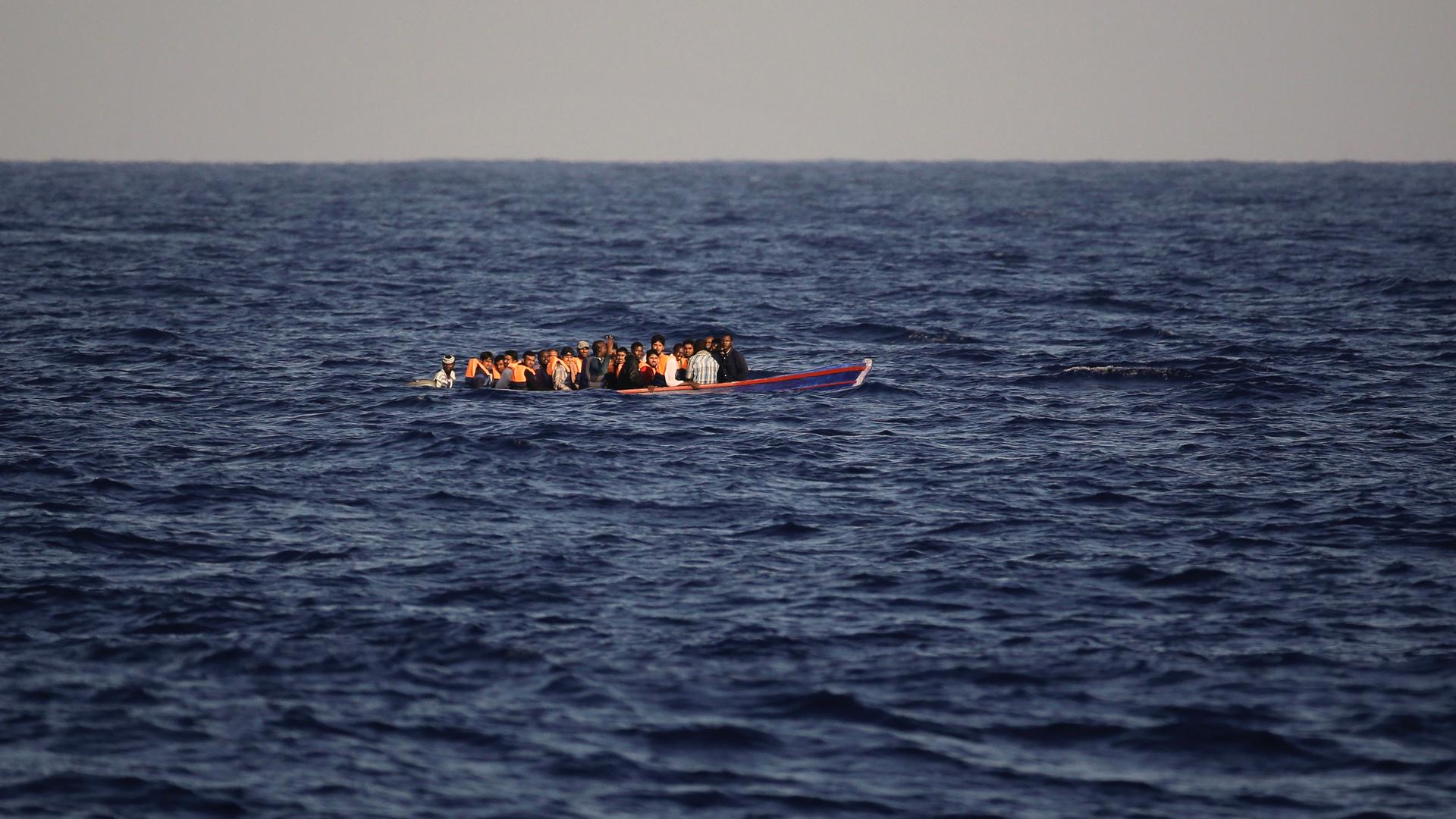Spain’s Canary Islands have seen a record number of wooden fishing vessels arriving over the last year — most cross the Atlantic from Senegal and Mauritania.
In November 2023, an open, overcrowded boat barely made port on the island of El Hierro, where police and Red Cross workers awaited them.
The journey across the open sea is dangerous, but more and more people are coming. This January alone, 7,000 migrants arrived by this route. A year ago, that number was less than 600.
“It’s been too much,” Teseida Padrón, a Red Cross volunteer, said after a long shift in a shelter on El Hierro. “We have limited resources on the Canaries, and we can’t give these people the care they need.” They arrive ill and cold, she said, often with hypothermia.
“Some of us, myself included, are starting to suffer psychologically,” fellow volunteer Gilberto Carballo said.
“The migrants tell you so many barbaric stories, the things they have had to live through. The reasons they left home.”

Those reasons are varied but often are because of poverty, drought, political instability and armed conflict.
The European Union wants to stop the migrants before they get to the continent. Brussels hopes that money will do the trick through investments and by doubling humanitarian aid.
Last week, Spain’s Prime Minister, Pedro Sanchez, and an entourage of EU officials flew to Mauritania’s capital, Nouakchott, to announce nearly $300 million in aid.
“The impact of conflicts in Mali and Niger are resulting in a significant increase in the arrival of refugees, and the situation is worrisome. So we will continue to support Mauritania in its efforts,” Sanchez said.
In exchange for the aid and massive investment in infrastructure and green energy projects, the EU essentially gets to farm out some customs duties.
Mauritania will have to house, feed and vet all the northbound migrants — and, most importantly, stop them from embarking for the Canaries without permission.
Mauritania has signed on the dotted line. But Monica Lopez Martín, with Spain’s Commission for Refugee Assistance, said the EU is already outsourcing such duties to neighbors, such as Libya and Morocco, Tunisia and Turkey.
She said it’s caused a humanitarian disaster.
“The latest tendency is to externalize Europe’s borders, passing off control over who gets into Europe to third-party countries,” Lopez Martín said. “This, when we all know that many of these countries themselves don’t uphold international standards on human rights.”
Allegations of migrant mistreatment abound in the countries where the EU has struck such deals.
Human Rights Watch and survivors say Tunisian authorities regularly expel migrants into the desert along its border with Libya without food or water. In August, dozens of bodies of migrants were found in one area.
The EU denounces such practices, but it’s under immense political pressure to reduce illegal entries and appears determined to keep the migrants as far from its borders as possible.
A surge in far-right voting over the last several years is due, in large part, to fear among some citizens that immigration into the bloc has spun out of control.
